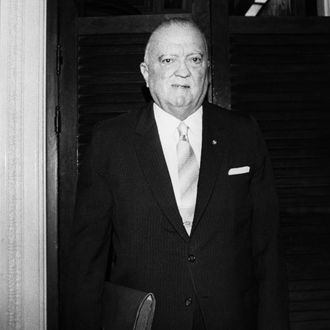
Forty-three years after pulling off a burglary that is mostly forgotten today, but played a key role in ending FBI spying programs targeting dissident groups, members of an eight-person crew of anti-Vietnam protesters are confessing to the crime. Like Edward Snowdens of the seventies, the activists stole thousands of files and passed them on to major media outlets, inspiring multiple front-page reports and eventually more oversight of intelligence agencies. However, unlike the NSA leaker, they obtained the documents by breaking into an FBI office in a suburb of Philadelphia and stuffing papers into multiple suitcases. And since they were never apprehended or forced to go on the run, for the past four decades they’ve lived seemingly normal lives.
One of the reporters who received those materials has written a book on subject, and convinced five of the eight people who burglarized the the FBI office in Media, Pa., on March 8, 1971 to go public. Unmasking themselves for the first time, several burglars tell the New York Times that their aim was to show the public that J. Edgar Hoover was aggressively targeting dissident groups. The peace activists formed a plan to break into the office and snatch any files they could find, hoping they might provide some evidence. The group included grad students, college professors, and a cab driver. John and Bonnie Raines had three young children at the time and made plans for who would care for them if they were sent to prison.
After casing the office for months, the group broke in on the night of the Muhammad Ali-Joe Frazier fight and emptied the filing cabinets into suitcases. They reconvened at a farmhouse an hour away, and began sifting through the documents. After sending the evidence to several newspaper reporters, the group never met again.
The documents revealed plans for increased surveillance of various left-wing groups, and efforts by the FBI to sow paranoia among leftists by encouraging the idea that “there is an FBI agent behind every mailbox.” Years later, the leak led to the discovery of a blackmail letter from FBI agents to Rev. Dr. Martin Luther King Jr., threatening to expose his extramarital affairs if he didn’t commit suicide.
The files helped spark a Senate investigation into domestic intelligence gathering in the mid-seventies that led to various reforms. Though the FBI tasked 200 agents with finding the burglars, the agency never solved the case. The Raineses, who are pictured in the Times with their grandchildren, don’t explain how their kids learned that their normal-looking parents were actually burglars and whistle-blowers. John Raines said they must look like “terribly reckless people,” for doing such a thing with three children at home, but explained they felt no one else would do it. “There was absolutely no one in Washington — senators, congressmen, even the president — who dared hold J. Edgar Hoover to accountability,” he said.






























